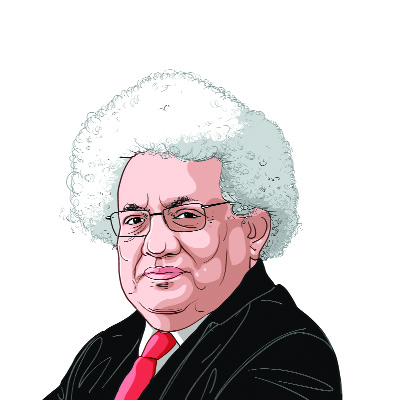Opinion Out of my mind: Democracy’s difficulties
Either the world has changed and Jeremy Corbyn will surprise everyone by attracting votes of previously apathetic citizens or the Labour Party will once again lose in 2020.

 Jeremy Corbyn after his election as the new leader of the Labour Party. (Source: Reuters)
Jeremy Corbyn after his election as the new leader of the Labour Party. (Source: Reuters)
The party I have belonged to for 44 years has just elected a new leader. When Labour Party lost the election in May 2015, the leader Ed Miliband resigned a day later. There is a procedure for nominating candidates for the new leader by MPs and four were nominated. A similar procedure was followed for a deputy leader and candidates nominated. They went around the country to hold 35 meetings addressing members and others who chose to come to listen to them, answering questions and debating among themselves. Saturday last the leader chosen was Jeremy Corbyn, who barely got nominated to begin with. He is on the extreme left of the party. He has frequently defied the party whip. (British MPs do not have the restrictions on their freedom to disagree with party whip as Indian MPs do.) Corbyn got nearly 60 per cent of all votes cast. 400,000 people voted. Corbyn’s majority is the largest any party leader has got in recent years.
The democratic process gives Jeremy Corbyn a legitimacy which overrides doubts about his chance of success at the next election. Only 10 per cent of MPs voted for Corbyn. He revives old socialist ideas which had proved to be vote losers. Either the world has changed and he will surprise everyone by attracting votes of previously apathetic citizens or the Labour Party will once again lose in 2020. There is a chance that the MPs may throw him out before the next election by a no-confidence motion.
The contrast between the British practice of choosing party leaders and what happens in India could not be greater. Almost all political parties in India are dynastic. No election takes place with public debates or participation of members or any genuine choice. Even the CPM changed from Prakash Karat to Sitaram Yechury during a weekend rather than after a vote among members.
The BJP has no dynasty. It had a sort of informal primary when it chose Narendra Modi as its parliamentary campaign leader and presumed leader. But even so, there was no formal nomination of rival candidates nor any debate about their ideas or policies. Members have no vote in choosing a leader.
India has a vibrant electoral process but the choice of candidates and leaders is undemocratic. This defect is compounded by the anti-defection laws which subject legislators to a strict party whip. The members are elected by voters but they serve their party chiefs. This is why it is very easy to make them behave like sheep, all shouting at the same time, rushing to the well. The idea that they could win an argument or that they are in Parliament to represent the views of their voters is alien to them.
India used to have a vibrant political and parliamentary life during the Fifties. There were giant parliamentarians who held the Nehru government to account. How did India lose that vibrancy and who crippled Indian democracy? Could it have been Nehru’s heirs?





